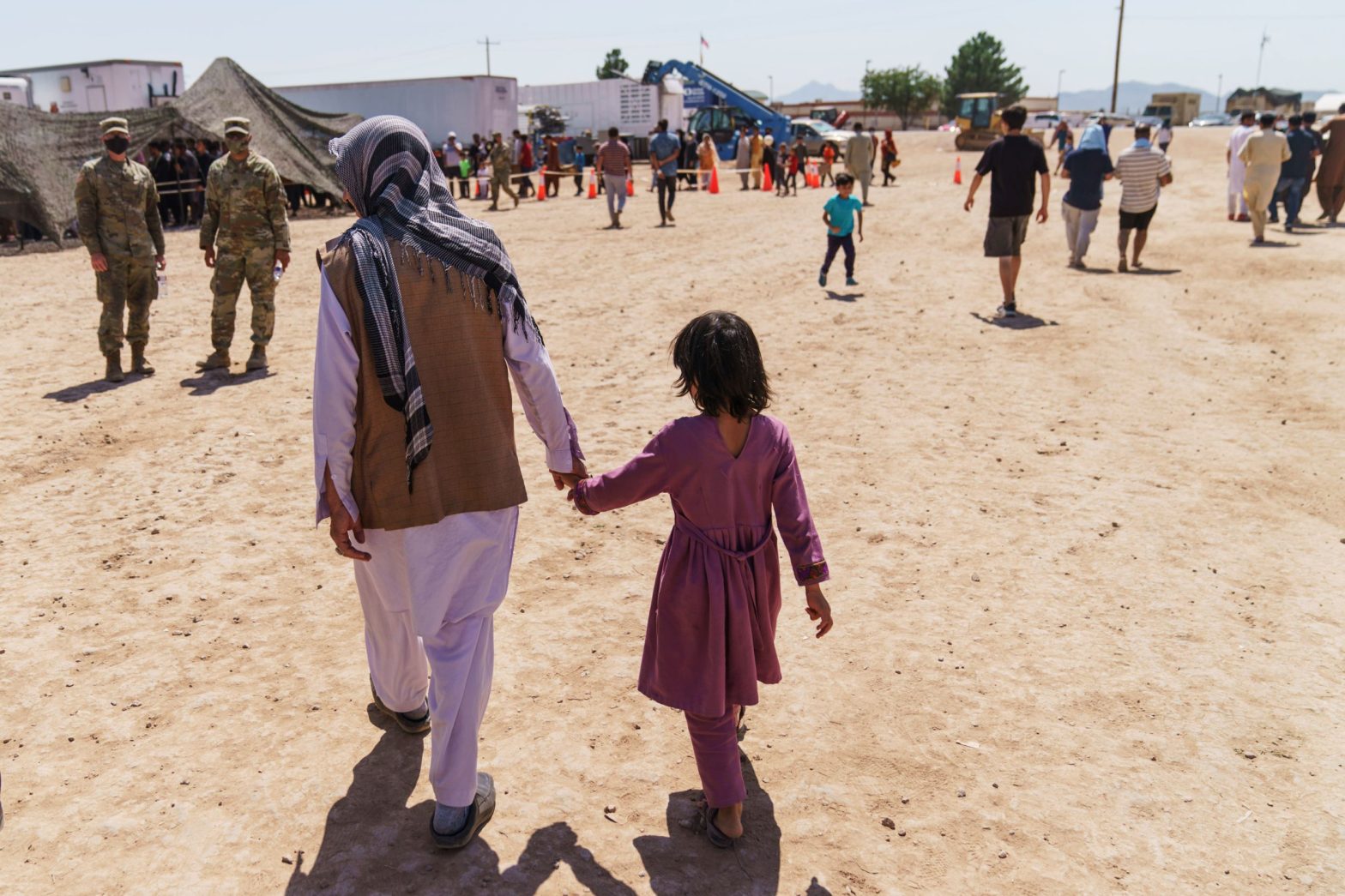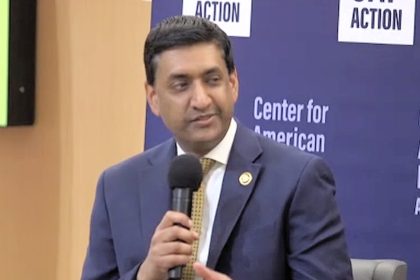American Immigration System Not Prepared for Afghan Refugee Situation

WASHINGTON — After a frantic two weeks of the biggest military evacuations in history, the United States is trying to figure out what to do with tens of thousands of Afghan refugees that will soon be flooding into the country.
“This is not the time for ‘I told you so,’ but… tragically this was a predictable and preventable crisis,” Krish O’Mara Vignarajah, president and CEO of the Lutheran Immigration and Refugee Service told the Bipartisan Policy Center, a think tank looking to address issues that matter to American families.
“The Biden administration had more than enough time to plan and execute an evacuation before the situation on the ground reached a crisis point.”
LIRS and other resettlement agencies began advocating for the evacuation of allied Afghans in April of this year. “We knew that [the process] wasn’t going to be agile enough for the need,” Vignarajah admitted.
The administration expects 65,000 Afghans to arrive by the end of September with more on the way, but not only are there backlogs in processing these people and concerns with where they will all eventually resettle, but there is also the fact that the majority of the refugees aren’t eligible for government-funded services and benefits.
About 17% of those who have already arrived in the U.S. are either citizens or lawful permanent residents who will go straight on to their destinations. The rest will go through eight military bases that have been set up to house refugees as they receive medical screening and other services and complete all of the required background verifications.
While the hope was that these people would move through the bases and be relocated to communities around the country quickly — in about two weeks — the crush of people, the lack of resettlement staff, and other factors mean they may be staying for much longer.
Part of the problem is that the U.S. domestic resettlement infrastructure is already at a breaking point. A historic number of migrants at the U.S.-Mexico border has overwhelmed the Department of Health and Human Services and Homeland Security.
Another major headache is the wide variety of statuses of people arriving from Afghanistan.
“Those who [evacuated] were anyone who got to the airport… basically there was just a mad rush for the exits,” said Camille Mackler, executive director of Immigrant ARC.
Evacuations took place in military planes, chartered planes, and even private planes, some of which had arrangements to fly to the U.S., though some didn’t and were sent to what Mackler called “lilypad countries” for processing before arriving in the U.S.
Those already in the U.S. were supposedly evacuated through official channels, including those pending immigration applications and Green Card holders, though Mackler admits it’s “very unclear to what extent there was a formal process… [And] there’s no clear mechanism, especially for those who are abroad and haven’t made it to the U.S.”
So the administration and a network of refugee groups are scrambling not only to help Afghans still trying to get out, those still trying to make it to the U.S. or elsewhere, and also those now caught up in an outdated U.S. immigration system.
“Normally when refugees arrive, they will receive 30 to 90 days of resettlement help,” explained Mark Greenberg, senior fellow, and director of the Human Services Initiative at the Migration Policy Institute. “Beyond that, they receive help through state coordinators.”
But most of the Afghan evacuees don’t yet have the status they would have as a refugee, as determined by USCIS.
“Lots of people who are coming may be in the pipeline for Special Immigrant Visas,” said Greenberg. These are Afghans who were employed or worked on behalf of the U.S. Government as well as those who served the U.S. mission in Afghanistan and are called Afghans-at-Risk. There are also priority applicants who worked for the U.S. military or otherwise for less than two years, or who worked for NGOs or media organizations.
Special immigrant visas require time, especially since the process is deliberately designed to be slow. For example, these visas took 18 – 24 months during the Obama Administration. Under Trump, the timeline was even longer.
Special Immigrant Visa holders can access a range of short and long-term services like initial relocation support services, school enrollment assistance, food, clothing, access to medical care, and support in applying for work authorization.
But most Afghan nationals will be paroled into the U.S. on a case-by-case basis, which doesn’t offer the same services. While they may be eligible to apply for immigration status in the future, humanitarian parole restricts these Afghans to very limited public benefits or services funded for only up to 90 days through the State Department.
“Ninety days are simply not enough,” said Vignarajah.
“The bottom line is, when you hear people talking both about the need for congressional action and the need for volunteer and community efforts, it is because a very significant group of those arriving are not going to be eligible for the same benefits and services that refugees normally are,” said Greenberg.
“Our immigration laws are not set up to respond to a situation like this,” admitted Mackler.
So the brunt of the effort may fall to volunteer organizations and resettlement agencies who typically work with the federal government to ultimately determine where refugees are relocated based on any U.S. ties or, more often, which local affiliates have the capacity to take them.
“It’s not a great use of energy at this time to have each state trying to figure out state by state how they are going to cover this,” said Tracy Dolan, director of the Vermont State Refugee Office.
But Anne Richard, former assistant secretary of state for Population, Refugees, and Migration said barring congressional action to help fund refugee supports, the least members can do is to speak about them in a positive light.
“These are families who are pro-American, who are Anti-Taliban, who were leaders in their community, who are trying to make a better world for themselves and their family, and who are now in danger because of what they tried to do.”
























